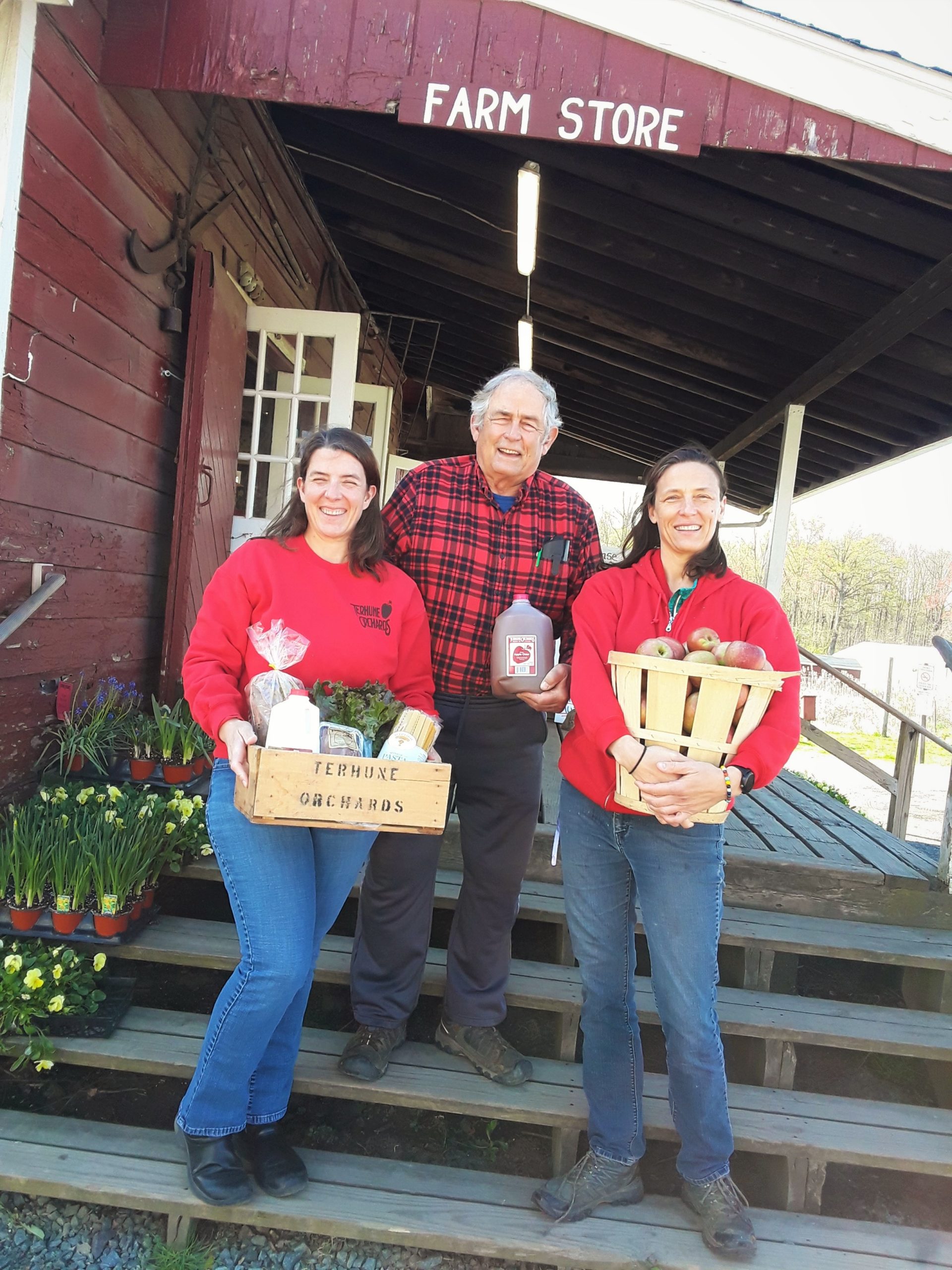
The bright apple sign still beckons visitors to Terhune Orchards, but the current pandemic reality has transformed the farm experience, putting partners Reuwai Mount Hanewald ’94, Tannwen Mount ’98, Gary Mount ’66 and their families on the frontlines from a different angle: keeping people healthy with nutritious food.
The 200-acre farm in Lawrenceville, New Jersey, grows some 55 varieties of fruits and vegetables and features a farm store stocked with supplemental items purveyed from other local farms, producers and small businesses. It also promotes a community-centered approach to the farm business, offering a family-friendly location for children to feed farm animals and for adults to sip Terhune-produced wine.
The apple sign once welcomed thousands of visitors a year. Now, “as a community center, we’ve had to change our structure as far as what that means, changing our model from music events and festivals to car pickup,” says Tannwen. “But access to fresh food is more vital than ever.”
Additional safety measures, including an outside hand-washing station, are in place. The farm store is open for “porch-side” pick up, or the opportunity for up to four customers at a time to peruse offerings inside; area home deliveries within a 15-mile radius are also possible. Asparagus, spring broccoli and other crops are being readied in the fields. Weekly the Mounts adjust to how to best keep their enterprise going.
“In the first days, our longtime customers were calling and told us what they needed and we would write down a list. The phones were in use all day long. It was tough but it was nice to talk with people,” Reuwai says. Now a more systematized approach is in place that still allows for phone orders but has an online component as well.
Like other small businesses, Terhune is striving to keep its workforce employed. Ordinarily another 20 workers would be hired at this time of year, Tannwen says, but this year Terhune will rely on its current 15-person staff to support the farm store and work in the fields. “It’s more labor-intensive on our side because we are reallocating resources,” adds Reuwai, “but we’re able to be flexible.”
That flexibility is a boon to their network of producers, some whom have lost income with the closing of restaurants they once supplied. “We’re working 24/7 to source items,” Tannwen says, from milk coming south from a family farm in Connecticut to ripe strawberries coming north from North Carolina. The goal is one-stop shopping for farm store customers.
Two positive side effects the pandemic has brought to the forefront are a resurgence in support for local businesses and interest in people knowing where — and how — their food is grown. The Mounts hope to benefit from both. “You have to have faith and keep on going,” Reuwai says. “We’ll see what happens down the road.”




